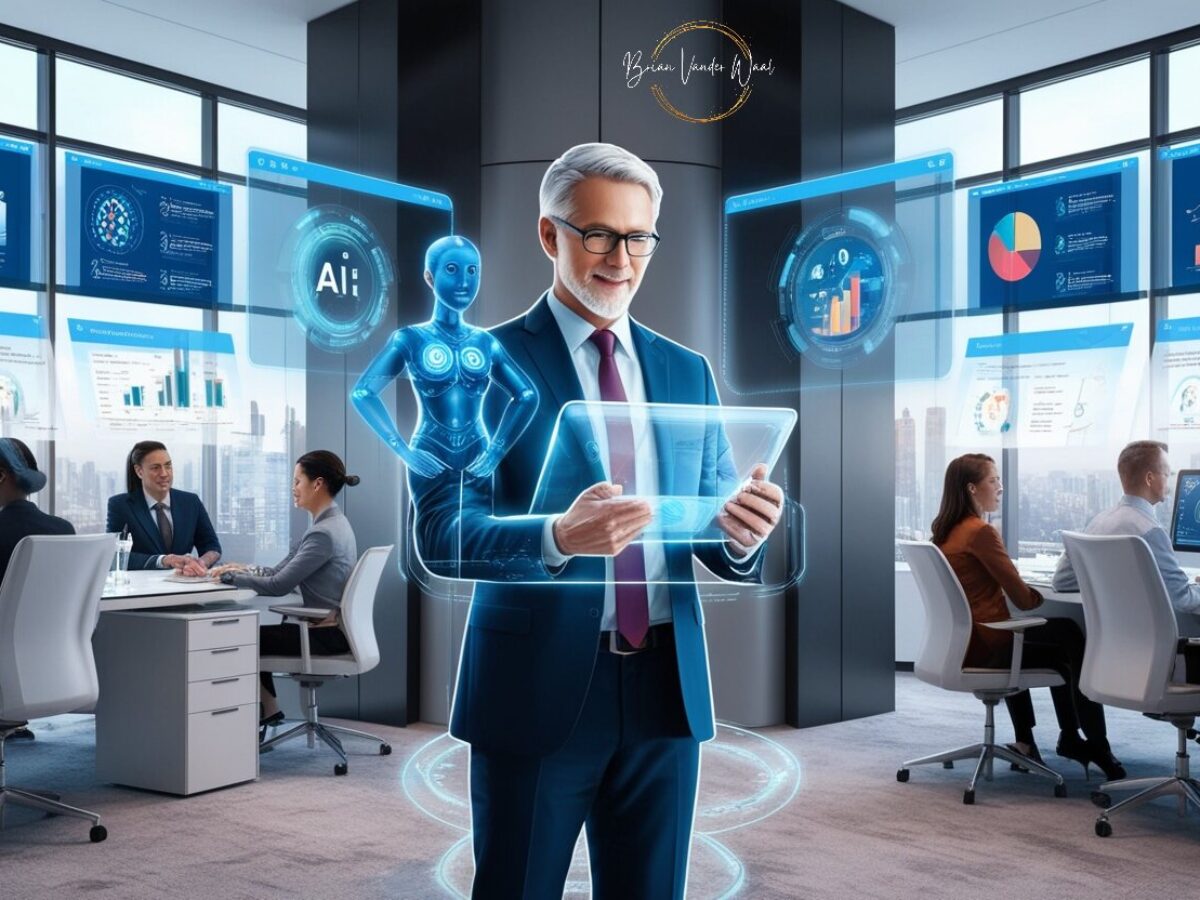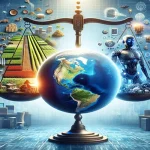Introduction
The 21st century has ushered in an unprecedented fusion of artificial intelligence, celebrity entrepreneurship, and global leadership. What once existed as separate realms of fame, governance, and technology now intersect to shape economies, opinions, and futures.
From AI-driven political strategies to celebrity-led innovations in digital industries, the world is experiencing a redefinition of influence — one powered by algorithms, ambition, and global connectivity.
AI as the New Engine of Global Transformation
Artificial intelligence has become the central force of modern progress, powering decisions across healthcare, finance, governance, and entertainment. Nations that integrate AI strategically are finding themselves at the forefront of innovation and influence.
However, this rapid adoption also comes with ethical and economic dilemmas. Questions of privacy, fairness, and human displacement continue to shadow the benefits of automation.
Celebrity Entrepreneurs in the Digital Economy
Celebrities are no longer confined to film studios or music charts — they are emerging as key investors and innovators in AI and tech. From Rihanna’s inclusive beauty empire leveraging AI analytics to Elon Musk’s ventures in robotics and neural technology, fame now meets futuristic entrepreneurship.
This shift reflects a deeper trend: celebrities are becoming digital architects, using technology to create platforms that extend beyond entertainment and into societal transformation.
Global Leadership and the Race for Technological Dominance
Governments around the world are engaged in an invisible race — one not fought with armies, but with algorithms. The United States, China, and the European Union are developing national AI strategies to maintain global competitiveness.
This geopolitical tension extends beyond economics, influencing international policies, cyber laws, and even the ethical codes that govern the use of emerging technologies.
The Influence of AI on Political Communication
Political campaigns are no longer driven solely by ideology — they are powered by data. AI tools now analyze voter sentiment, optimize messaging, and forecast election outcomes with astonishing precision.
While these advancements make politics more strategic, they also risk creating echo chambers where digital manipulation can distort truth and erode public trust.
Celebrity Activism in the Age of AI Awareness
Celebrities are increasingly using their influence to promote ethical AI use and technological transparency. Figures like Emma Watson and Leonardo DiCaprio have merged environmental activism with digital advocacy, highlighting how algorithms affect social justice and sustainability.
Their involvement not only amplifies awareness but also inspires corporate and governmental accountability in shaping the digital landscape responsibly.
The Moral and Economic Future of AI Power
As artificial intelligence integrates further into daily life, moral questions grow louder. Who controls the data? Who profits from automation? Who ensures equality in a machine-driven world?
Balancing innovation with inclusion has become the defining challenge for global leaders, entrepreneurs, and citizens alike.
FAQs
How is AI influencing global leadership today?
AI informs political decisions, shapes national strategies, and enhances governance efficiency, though it also raises ethical challenges in privacy and control.
Why are celebrities investing in AI ventures?
Celebrities recognize AI’s potential to transform industries and are leveraging their influence to shape its development and business impact.
Is AI changing the way political campaigns are run?
Yes, AI-driven analytics and targeted algorithms are revolutionizing campaign strategies and voter engagement worldwide.
What role does celebrity activism play in technology awareness?
It bridges public understanding, ensuring complex issues like data ethics and automation become mainstream conversations.
Can AI coexist with human creativity and empathy?
Yes, but it requires conscious regulation and collaboration to ensure machines enhance — not replace — the human spirit of innovation.
Conclusion
The convergence of artificial intelligence, celebrity entrepreneurship, and global leadership has redefined what it means to hold power in the digital age. Influence is no longer confined to political office or public fame — it lives in algorithms and innovation.
As AI continues to shape economies and cultures, the challenge lies in ensuring this new power serves humanity’s collective progress, not just its privileged few.





